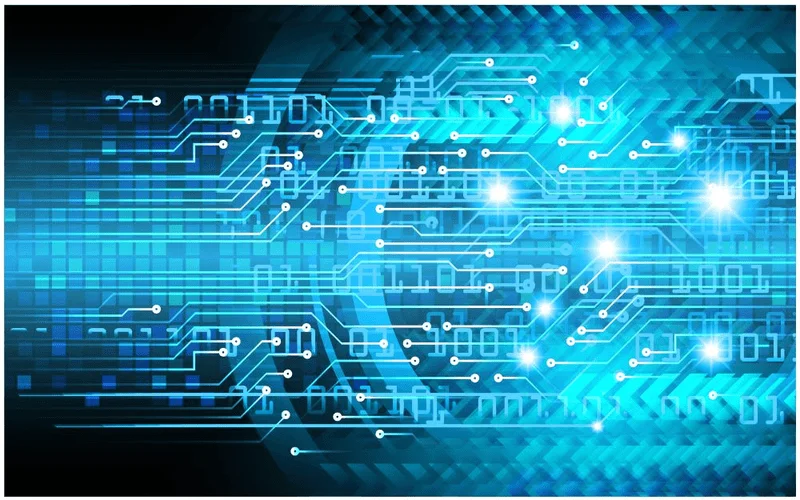As AI integration turns into extra complicated, it becomes even more necessary to resolve points that limit trustworthiness. While excellent trustworthiness within the view of all users isn’t a sensible aim, researchers and others have identified some ways we will make AI more trustworthy. «We need to be affected person, learn from errors, make things better, and never overreact when something goes wrong,» Perona says. In this fashion, AI can encode historic human biases, accelerate biased or flawed decision-making, and recreate and perpetuate societal inequities. On the other ai trust hand, as a end result of AI methods are consistent, using them may assist keep away from human inconsistencies and snap judgments.
Critical Techniques And Trusting Ai
As mentioned, such efforts include ways to progress AI systems to become more clear and explainable (Abdul et al., 2018; Adadi & Berrada, 2018; David Gunning & Aha, 2019; Storey et al., 2022). They additionally actively examine the issue of machine-learning biases (Mehrabi et al., 2021), which is a key source of AI failure that engenders distrust in specific AI techniques and the AI trade as an entire. Trust is usually thought to be a psychological mechanism for reducing uncertainty and rising the probability of a profitable (e.g., safe, pleasant, satisfactory) interaction with entities in the environment. When we trust someone, we expend less cognitive, physiological, and financial assets dealing with this entity.
Limitations Of Present Approaches To Ai Belief
It doesn’t memorize what each knowledge point is, but as a substitute predicts what a data level might be. Researchers from Caltech and Johns Hopkins University are using machine studying to create tools for a more trustworthy social media ecosystem. The group aims to identify and stop trolling, harassment, and disinformation on platforms like Twitter and Facebook by integrating pc science with quantitative social science. «On one hand, we now have these novel machine-learning instruments that display some autonomy from our own decision-making. On the other, there’s hypothetical AI of the longer term that develops to the purpose the place it is an clever, autonomous agent,» says Adam Pham, the Howard E.

Bad Machines Corrupt Good Morals
In papers under our evaluation, we have been in a place to gain a common grasp of factors that would be employed as a metric to work on trust in AI. To create AI algorithms and merchandise or related technology, in the preliminary step, we must take the mandatory precautions concerning the care of human and their satisfaction. Moreover, we must be very careful in formulating legal guidelines and standardizing AI and related applied sciences in design and exploitation for all customers. These basic ideas ought to be adopted by determining the appropriate parameters for product high quality remotely or by communication with the consumer. The implementation of these universal principles is feasible solely in a pervasive and complete system that can be seen and tracked at any time all round the world. This system must be ready to control the growing algorithms and manufacturing of applied sciences, as well as the implementation of ideas of their codifications.
Non-interchangeability Of Interpretability, Explainability, And Transparency, And Their Classification
But as AI purposes grow, issues have elevated, too, together with worries about functions that amplify existing biases in enterprise practices and in regards to the safety of self-driving autos. Overall, there is no purpose to state that AI has the capability to be trusted, simply because it’s being used or is making choices within a multi-agent system. If one is evaluating the trust positioned in a multi-agent system as a complex interweave of interpersonal trusting relationships of these making choices inside multi-agent methods, one can’t trust AI for the reasons outlined earlier in this paper.
Furthermore, we assume that only advanced entities, particularly, people, potentially other animals (Griffin & Speck, 2004), and clever machines, are capable of exhibiting belief. Another factor leading to this potential perverse incentive is legal responsibility concerns on the part of developers (Doshi-Velez et al., 2016). If, as some have suggested, “trustworthiness is… a kind of reliability,” then we will distinguish belief in AI from belief within the institutional system that AI emerges from (McLeod, 2020). While these are separate issues and establishing and sustaining the trustworthiness of each requires completely different kinds of options, belief within the latter will enhance trust in the former. Through an examination of assorted machine-learning approaches in air site visitors management, researchers (Hernandez et al., 2021) devised an explainable framework aimed at enhancing trust in AI.
He seen belief is a mechanism for lowering social complexity that works by generalization of expectations and provides order to an individual’s internal understanding of advanced outer environments. The idea of belief in Luhmann’s works spans over private trust in the direction of individuals, as well as system trust in course of social systems (Luhmann, 2018). Indeed, slight adjustments in enter would possibly cause massive changes within the conduct of AI-based techniques, probably inflicting a decline in system belief.
The latter work is of undisputed significance, as we proceed to find new facts concerning the nature of direct human-AI use. Large-language fashions, that are generally used to power chatbots, are especially susceptible to encoding and amplifying bias. When they are trained on data from the web and interactions with real people, these models can repeat misinformation, propaganda, and toxic speech.
For people, we might trust other humans as a end result of we deem their motivations and intentions dependable. Yet, with no imaginative and prescient of what it’d imply to carry an artificial intelligence system accountable, we have one much less software for establishing the reliability of conduct essential for belief. In this fashion, accountability will relaxation with punishable builders until a concept of direct AI accountability is developed. This will, in turn, engender a perverse incentive for AI builders to keep away from liability. Being predictably correct is usually insufficient to ascertain or warrant trust in people.
- A promising course is improvement of moral codes of conduct, and protocols and methods to be adopted by AI developers and organizations voluntarily, as industry-wide norms (Crawford & Calo, 2016).
- It’s about the clarity in its communication about what it’s doing, why it’s doing it, and the way certain it’s about the results.
- In truth, if users understand that a company is only pretending to adjust to ethical tips, they might construct less belief in that firm.
- Provides an excellent overview of how these technologies have developed over the previous five decades and presents a sensible opinion on present capabilities.
- Among these metrics, lowering and/or eradicating vulnerabilities and errors are very essential and must be considered in research.
As an example, designers usually attempt to make AI seem more human-like to extend belief in the know-how. They accomplish that by endowing it with traits that recommend greater agency, such as giving a name, gender and voice to autonomous automobiles and digital assistants. Since humans are usually credited with company, users of those human-like AI methods see them as additionally having company. Although this could make the AI seem capable and benevolent, resulting in larger belief, this might be offset and even outweighed by heightened concerns about betrayal.
To scale back bias in datasets, it’s essential to gather data from experts and specialists across numerous backgrounds and fields. Data providers can expand the knowledge domains lined by their teams for the strongest influence on model security. There are many individuals participating in this digital setting, such because the technical assist employees, financial advisers, and builders. However, that is still a zone of default belief within the organisation itself, and/or the other ethical agents in these exchanges, no matter their proximity or relationship to us.
This opaque nature of complicated AI algorithms in turning the enter into output is known as “black-box” AI (Das and Rad, 2020; Scharowski and Brühlmann, 2020; von Eschenbach, 2021). The trustworthiness of those algorithms has been questioned by many ethical, technical, and engineering communities (Das and Rad, 2020; von Eschenbach, 2021). The pervasive use of deep neural networks in which the number of input features sometimes exceeds 1000’s of nodes has exacerbated these concerns (Andrulis et al., 2020). Accordingly, AI scientists lately have targeted on a department of AI known as Explainable AI (XAI), which aims to add clarification, transparency, and interpretation to AI-based choices by shedding light on the opaque nature of AI strategies (Shaban-Nejad et al., 2021a). Studies have proven that XAI can increase the trust of the end-user in AI-based decisions (Zolanvari et al., 2021).
One can solely feel dissatisfied by AI, because this ‘refers to practical expectations that aren’t met and, as such, is the appropriate response to reliability issues’ (Fossa 2019, p. 75). As I have already demonstrated on this part, we really feel disenchanted by those we rely on (e.g. AI), however feel betrayed by those we trust (e.g. fellow human beings). The exclusion of betrayal is incompatible with the normative and affective accounts of belief, however not necessarily the rational account of trust. However, the exclusion of betrayal from definitions of belief lead to dubious and incoherent conclusions, as demonstrated in this part. The Framework provides a conceptual, theoretical, and methodological basis for trust analysis in general, and belief in AI, specifically. Guided by the seminal arguments of methods principle, the framework advances systems-grounded propositions about the nature of techniques and trust.

Accordingly, belief in synthetic intelligence is a composite of belief in the program itself and within the common scientific and institutional community around artificial intelligence (Chen and Wen, 2021). Further nonetheless, distrust in artificial intelligence can additionally be rooted in distrust of government, even in personal applications. As for manipulation, mistrust in artificial intelligence may be founded on considerations about cybersecurity. For occasion, an indication by researchers revealed that hacking into the dataset of an artificial intelligence program used in a healthcare setting might result in widespread false detection of cancerous lesions (Akkara and Kuriakose, 2020).
Transform Your Business With AI Software Development Solutions https://www.globalcloudteam.com/ — be successful, be the first!